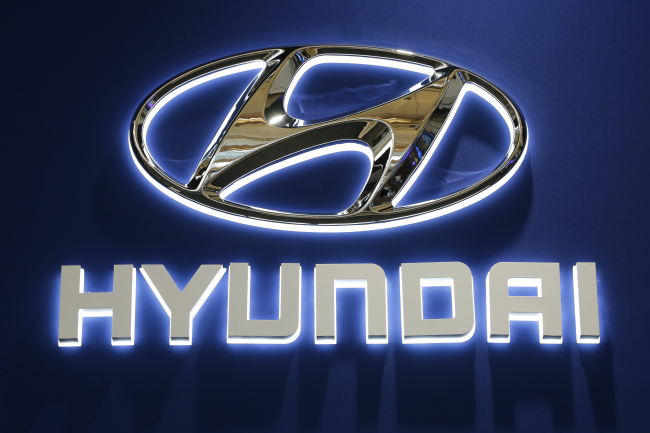Hyundai Motor, the nation’s largest carmaker, saw its net profit last year hit the lowest mark in seven years, due to the strong Korean currency and sluggish sales in China.
In a regulatory filing released Thursday, the carmaker posted 4.57 trillion won ($4.31 billion) for its 2017 operating profit, an 11.9 percent decrease from the previous year. It is the lowest figure since the company adopted International Financial Reporting Standards in 2010.
(Yonhap)
Its revenue last year rose 2.9 percent to 96.3 trillion won year-on-year. However its operating profit to sales ratio fell 0.8 percentage point to 4.7 percent. This is the first time that the ratio has hit the 4 percent level.
Furthermore, its net profit plunged 21 percent to reach 4.54 trillion won from 5.71 trillion won in 2016, due to margins that declined over market competition and sluggish sales by its China operation.
“The strong won against the dollar, fierce competition in major markets, including China, and increased marketing costs brought the profitability down in 2017 on-year,” the company said in a statement.
“Despite the difficult environment last year, the company has successfully entered new segments through the launch of the Kona and G70, and became the No. 2 green carmaker in the world,” it added.
The carmaker suffered from a sharp decline in sales in China last year due to a diplomatic dispute over Seoul’s decision to deploy the US’ Terminal High Altitude Area Defense anti-missile system here.
Beijing was against the deployment of the system, which it said could infringe on its defense system, while Seoul argued that the decision was made solely to intercept a possible missile launch by North Korea.
The confrontation brought a near-boycott in China against Korean products, causing Hyundai’s sales to plummet more than 50 percent.
To recover its sales this year, Hyundai plans to expand its SUV lineups and launch more green cars including fuel-cell electric vehicles. It also aims to improve shareholders’ rights and transparency in management, the company added.
By Cho Chung-un




